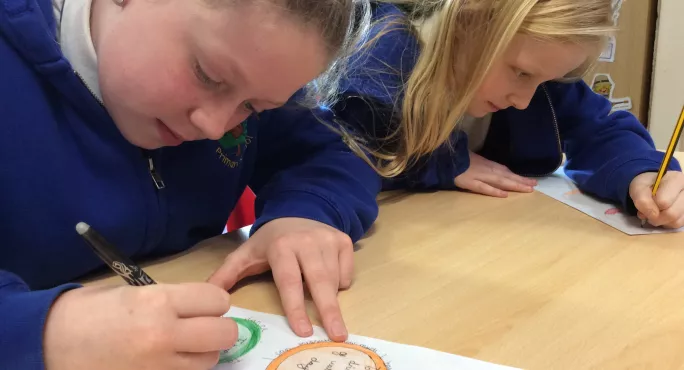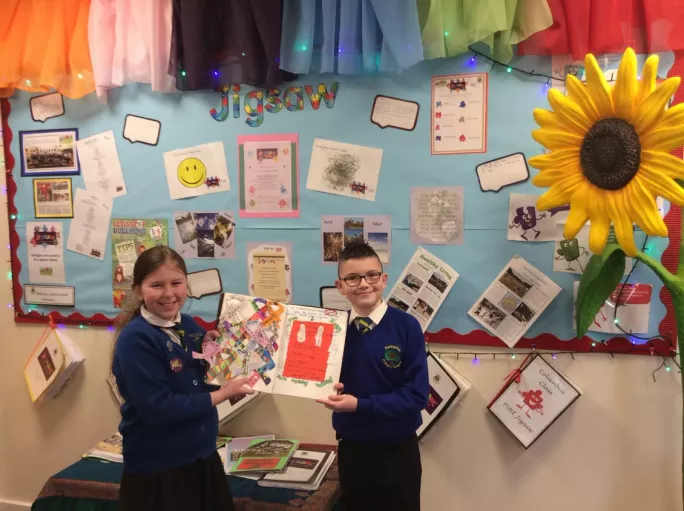How we put PSHE in prime position

PSHE is an important part of students’ development, and it shouldn’t be a tick-box exercise. By embracing this philosophy at Swingate Primary, we are supporting our students in becoming confident, mindful and kind members of society.
I joined Swingate as assistant head in September 2015. It’s a large school in Medway, with more than 650 students, and was already offering many positive and exciting learning opportunities, but it lacked a strong and consistent approach to PSHE. Monitoring and observations revealed that PSHE often got neglected on the weekly timetable, particularly in key stage 2, as other subjects took precedence.
Circle times happened frequently in KS1 and classes would take part in Star of the Week (where they select a pupil and record positive comments about them), but we were not fully equipping our children with the tools and skills to become outstanding citizens, with empathy for those different from themselves and with the ability to reach their full potential. Relationships and sex education was tucked at the end of Year 6 with a visit from the school nurse, while healthy eating was only covered during Healthy Living Week in the summer. But there were so many other issues to tackle, such as lack of resilience, inappropriate use of social media, self-esteem and body image issues, and more.
So I began my hunt for a suitable scheme to support my vision. I considered writing my own curriculum and began gathering the areas I wanted to cover; I quickly realised that I would not succeed in this grand ambition. Then I discovered the Jigsaw PSHE scheme, which immediately stood out as comprehensive and exciting, with planning and resources created by teachers with huge experience in the area. This scheme covers foundation stage 1 to Year 6, hitting the entire PSHE curriculum, with a focus on emotional literacy and mental health. Teachers are provided with a file for each year group, with all the lesson plans and progression built in.
Each group has a “Jigsaw friend”; a soft toy teaching aid that they use for passing round in circle time, establishing turn-taking and good listening. Furthermore, the “friends” can help children to relax and open up during the sessions, and they help the teacher to introduce more sensitive issues safely.
Prioritising PSHE in primary
Having just completed a mindfulness course, I was fully aware of the wonderful impact this can have upon wellbeing, with proven benefits in reducing stress, anxiety and depression. And so I was delighted to see that Jigsaw incorporates a mindfulness element into each lesson and assembly, providing a chime and scripts to support this practice. The teacher reads a mindful script and encourages the children to use mindful breathing techniques and to listen to the chime until they cannot hear it any more. This teaches the children to be in the moment, which can lead to greater focus and control in their learning and behaviour.
We started using the programme in September 2017 and the impact has been enormous, particularly the enthusiasm from students and parents. We now start each term with a launch assembly to begin the new topic. We sing, use the chime and introduce the new area in an engaging way, challenging preconceptions and exciting pupils for their term of learning ahead.
The children adore the songs that come with the scheme, with lyrics that reinforce a positive ethos, and we often sing them in other assemblies, too. Now there is a weekly circle time in every classroom, from nursery to Year 6, along with exciting, well-structured and engaging PSHE lessons (each lesson follows the same routine: connect me, calm me, open my mind, tell me or show me, let me learn and help me reflect).

Every teacher has a class book in which they record discussions and outcomes; this is a personalised journal mapping the practical, physical and emotional experiences from the sessions. Last year’s books are proudly on display, while current books are available for children or any adults to look through to reflect on their journeys.
We have witnessed attitude changes from the children, particularly an increase in compassion, self-esteem, inclusivity and kindness, and their feedback is overwhelmingly positive. One Year 5 pupil said: “It’s helped me be more confident to share my opinion.” While a Year 4 pupil said: “I’ve banished the bad things from my head and feel more positive.”
Our most recent Ofsted inspection, in November 2018, found that students were very confident in how to stay safe on and offline, were able to negotiate friendship issues and respect differences in each other, and valued equality in society. It’s an affirmation of our good PSHE teaching and thanks in large part to the Jigsaw Programme.
And this was all before statutory status for relationships and health education came along. The Department for Education is still in the process of creating the statutory guidance, but we have no worries at Swingate as we know Jigsaw ensures that we are compliant (and offers free updates). That means we will always be using an up-to-date, relevant programme that supports our children’s (and teachers’) needs.
Mary Clarke is the assistant headteacher at Swingate Primary School in Chatham, Kent
